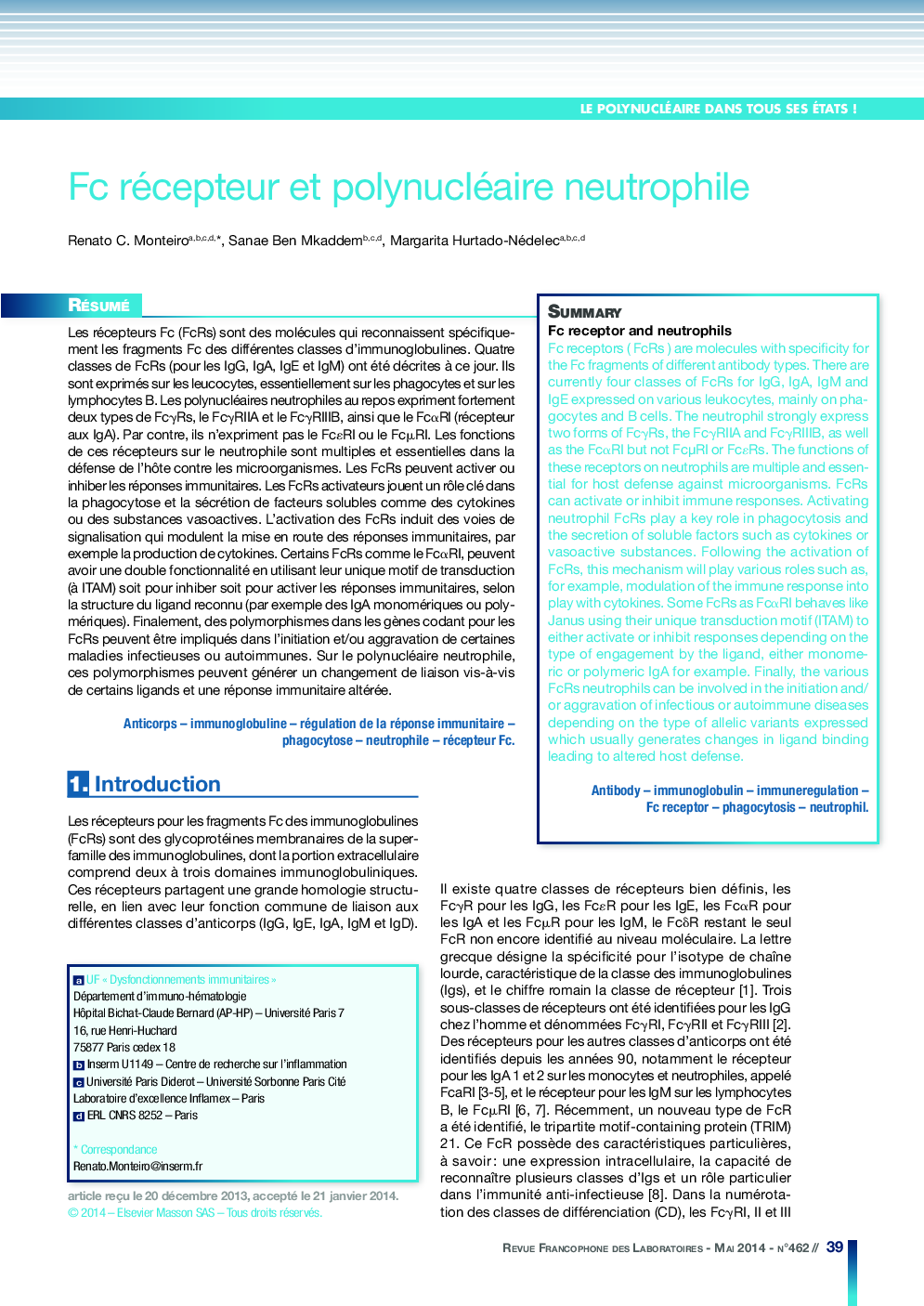| Article ID | Journal | Published Year | Pages | File Type |
|---|---|---|---|---|
| 7649298 | Revue Francophone des Laboratoires | 2014 | 8 Pages |
Abstract
Fc receptors (FcRs) are molécules with specificity for the Fc fragments of different antibody types. There are currently four classes of FcRs for IgG, IgA, IgM and IgE expressed on various leukocytes, mainly on phagocytes and B cells. The neutrophil strongly express twoformsof FcγRs,theFcγRIIAand FCγRIIIB, aswell as the FcαRI but not FcμRI or FcεRs. The functions of these receptors on neutrophils are multiple and essen-tial for host defense against microorganisms. FcRs can activate or inhibit immune responses. Activating neutrophil FcRs play a key role in phagocytosis and the secretion of soluble factors such as cytokines or vasoactive substances. Following the activation of FcRs, this mechanism will play various roles such as, for example, modulation of the immune response into play with cytokines. Some FcRs as FcαRI behaves like Janus using their unique transduction motif (ITAM) to either activate or inhibit responses depending on the type of engagement by the ligand, either monomeric or polymeric IgA for example. Finally, the various FcRs neutrophils can be involved in the initiation and/ or aggravation of infectious or autoimmune diseases depending on the type of allelic variants expressed which usually generates changes in ligand binding leading to altered host defense.
Keywords
Related Topics
Physical Sciences and Engineering
Chemistry
Analytical Chemistry
Authors
Renato C. Monteiro, Sanae Ben Mkaddem, Margarita Hurtado-Nédelec,
